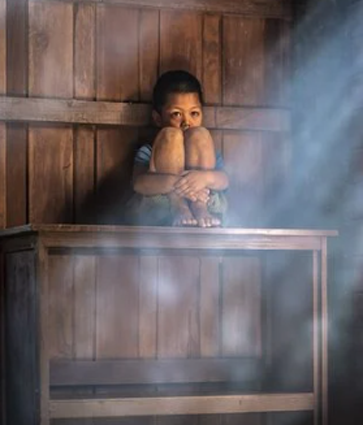|
|
To a very young neglected child the world can seem a very scary place. In many ways anxiety is simply part of growing up. Children may be frightened about starting school, or moving to a new home in a different neighborhood, or even falling ill and having to visit a hospital.
Being separated from parents can be an overwhelmingly traumatic event for a child. Separation can have a direct impact on the relationship between child and parents. For example, children who are overprotected may respond to separation with high levels of anxiety. Neglected children facing a new strange world may feel very frightened.
Some children start living with anxiety as early as their pre-school years, often even earlier, and continuing into adulthood. These anxiety disorders are not dissimilar to those found in adults, and can become specific phobias that look and operate just like the phobias of adulthood. (Pilecki & McKay, 2011)
Symptoms
Symptoms include clinging, sleep difficulties, and tummy aches. These are typical of anxiety disorders among young children. (Morris & Ale, 2011; Schultz & Petermann, 2011) They often center on specific, sometimes imaginary objects and events such as monsters or loud thunderstorms, rather than broad concerns about their future or their place in the world. (Davis & Ollendick 2011) Separation anxiety disorder is one of the most common childhood disorders that follows this profile. (APA 2013, 2012)
Separation anxiety disorder is displayed by as many as four to ten percent of children. They feel extreme anxiety, often along with panic, whenever they are separated from home or a parent. Their separation-related fears can cause nightmares and they become adamant about not leaving the house or their parent going out, even to just run an errand. Symptoms are persistent, lasting more than six months.
Some children fear they or their parents could get lost or their parents will meet with a terrible accident if they are separated. These children function quite normally as long as they are near their parents, however at the first hint of separation the dramatic symptoms are re-awakened.
School Phobia
As the child grows, School Phobia or school refusal can develop, where the fear of leaving home and going to school is so powerful that they stay home for long periods, sometimes becoming home schooled. School Phobia can be caused by problems unrelated to separation, however, and may be caused by social or academic fears, depression or fears of certain acitivities, objects or persons.
As many as two-thirds of children and adolescents with anxiety disorders go untreated. (Winter & Bienvens, 2011) Among children receiving therapies, cognitive-behavioral therapy has shown the best results across a number of research studies. (Edmonds et al., 2011; Kendall et al., 2010) Psychodynamic approaches often use play therapy as part of treatment. (Landreth, 2012)
This report is not a diagnosis. We hope this information can guide you toward improving your life.
Review our Knowledge Base or the links displayed on this page for similar and related topics.

